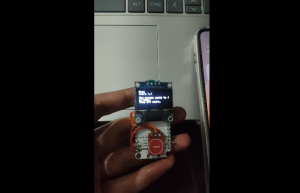A new study offers hope to people suffering from severe epilepsy who are not responding to other treatments.
The newly-developed marijuana drug in liquid form was found to effectively reduce the number of seizures by 54 percent.
Researchers at the American Academy of Neurology involved 213 participants with an average age of 11 who were diagnosed with different types of severe epilepsy. They were given liquid marijuana called cannabidiol, a component of marijuana that doesn't make people "high," and were asked to take it once a day for 12 weeks. The researchers also tracked the number of seizures experienced by the participants during the study period.
Only 137, or 64 percent, of the participants were able to complete the medication period; six percent had to stop due to intolerable side effects. The analysis showed that those who continued taking the drug reduced their number of seizures by 54 percent.
Those with Dravet syndrome, a rare form of epilepsy that begins in infancy, reported a reduction of 53 percent on seizures. The improvement rate is even higher at 55 percent for those with Lennox-Gastaut syndrome, a type of epilepsy that can lead to intellectual disability and lifelong seizures, as well as 10 other types of severe epilepsy.
Some of the side effects experienced by the participants included drowsiness, fatigue, diarrhea and loss of appetite.
"So far there have been few formal studies on this marijuana extract," Orrin Devinsky, a study author from New York University Langone Comprehensive Epilepsy Center and a Fellow of the American Academy of Neurology, said in a news release. "These results are of great interest, especially for the children and their parents who have been searching for an answer for these debilitating seizures."
The researchers admitted that further study is needed to determine the effectiveness and safety of the liquid marijuana.
The study was published in the April 13 issue of Neurology. The findings will also be presented at the upcoming 67th Annual Meeting of the American Academy of Neurology in Washington, DC.
© 2025 HNGN, All rights reserved. Do not reproduce without permission.








